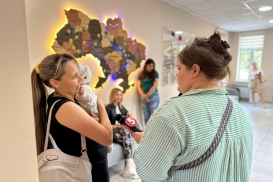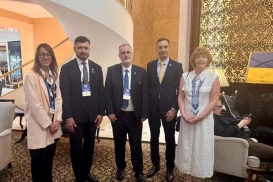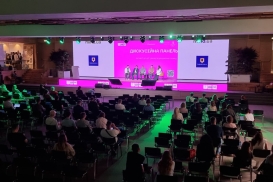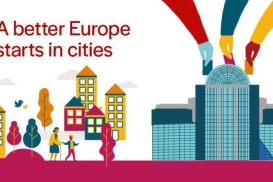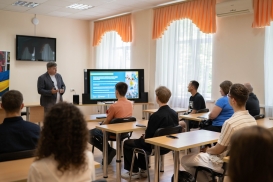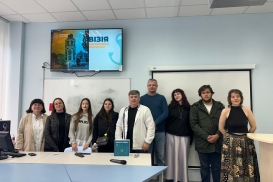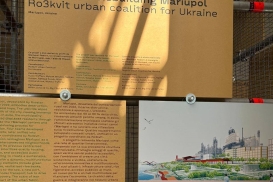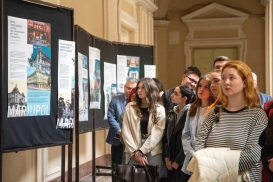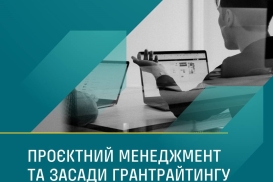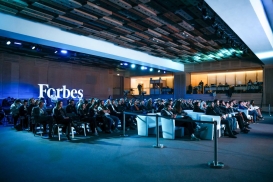Two-day training for communities: results of the second module of the Community Recovery Academy
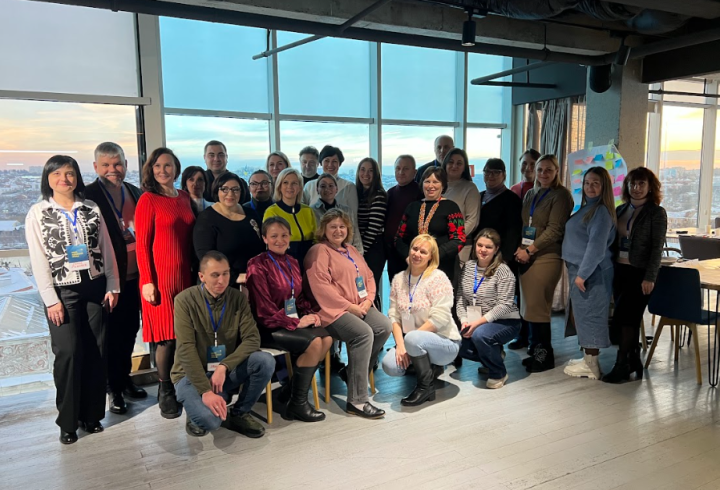
The second training module of the Community Recovery Academy, which aims to prepare municipal managers for effective economic recovery of communities, has been completed in Vinnytsia. The event was attended by 30 representatives from different regions who are working on development strategies in the face of war.
The first day was devoted to exploring the innovative spaces of Vinnytsia. Andriy Ocheretnyi, Deputy Mayor, spoke about the development of the Vinnytsia Industrial Park, attracting relocated businesses and implementing renewable energy. Particular attention was paid to the mechanisms of support for enterprises, including compensation for the cost of installing solar systems. Mr. Andriy explained how the Vinnytsia community was able to provide the Industrial Park with all technical communications, road infrastructure and lighting.
The participants also visited the international group of companies KNESS, which specializes in renewable energy. Sergiy Kravchuk, Director of Trading, presented the company's technologies, and Viktor Terletsky, Director of Technical, demonstrated the operation of the PV.SCADA control center for managing solar power plants.
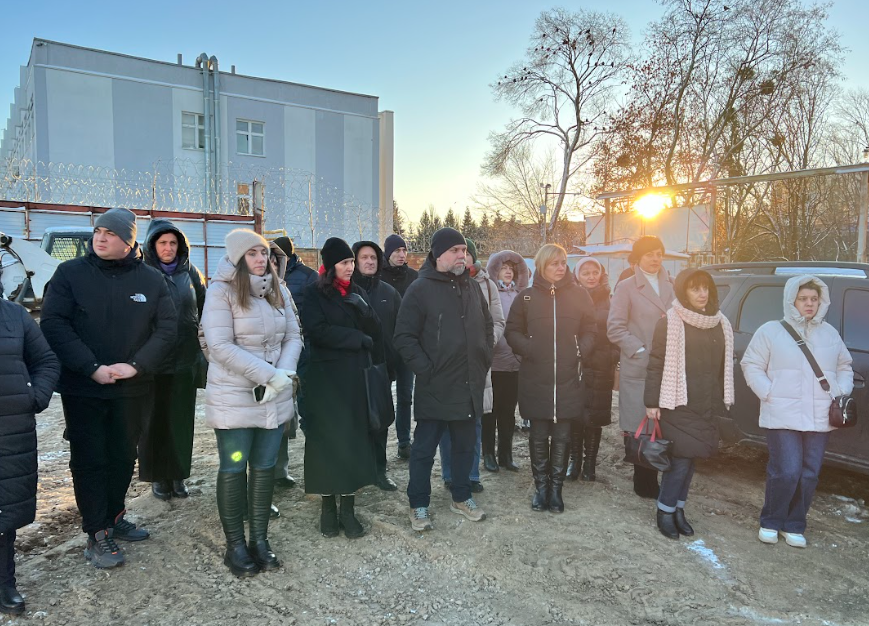
"The Crystal" Innovation and Technology Park has become a vivid example of the combination of science, business and the public. It has a modern infrastructure to support startups, develop new technologies, and provide training. The participants were told about the park's capabilities, including the Fab Lab, the Entrepreneurship Development Center, and the IT school.
After the excursions, the participants received a presentation from the Vinnytsia community. Nataliia Maletska and Diana Matsiuk, representatives of the Department of Recovery and Development of the Vinnytsia City Council, spoke about finding funding and grants for community projects. They shared their experience in attracting international donors, developing a recovery strategy, and adopting regulations at the local level to support entrepreneurs and restore infrastructure.
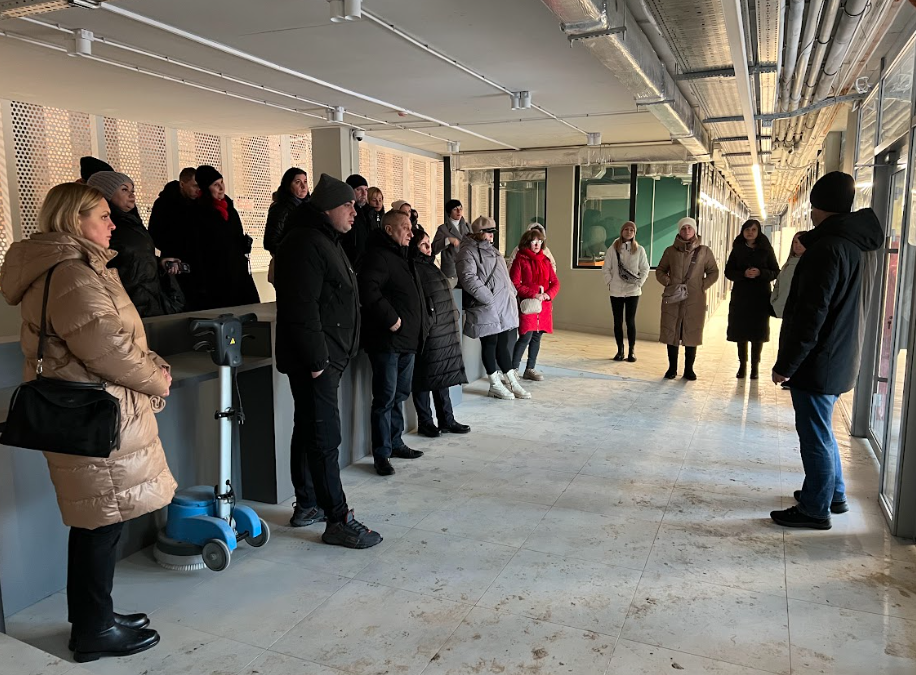
The final part of the day was a workshop led by the Academy's organizers on “Justice for Community Economic Recovery.” The participants discussed that every community has the right to a fair recovery and how to ensure it at different levels - international, regional and personal (for each resident). In particular, they raised the issue of the financial component of recovery, compensation at the expense of the aggressor country, and the importance of support programs at the state level.
Since the beginning of the Community Recovery Academy, my colleagues and I have begun to analyze the available resources and issues in our community. This includes issues that arose before the full-scale invasion, as well as the current challenges we face today and those that may arise after de-occupation. The workshop left a special impression on me, as I got to know the power of business in Vinnytsia. The number of businesses relocated to the Vinnytsia community and the trip to the control centers of solar power plants were impressive - it was a real discovery for many colleagues.
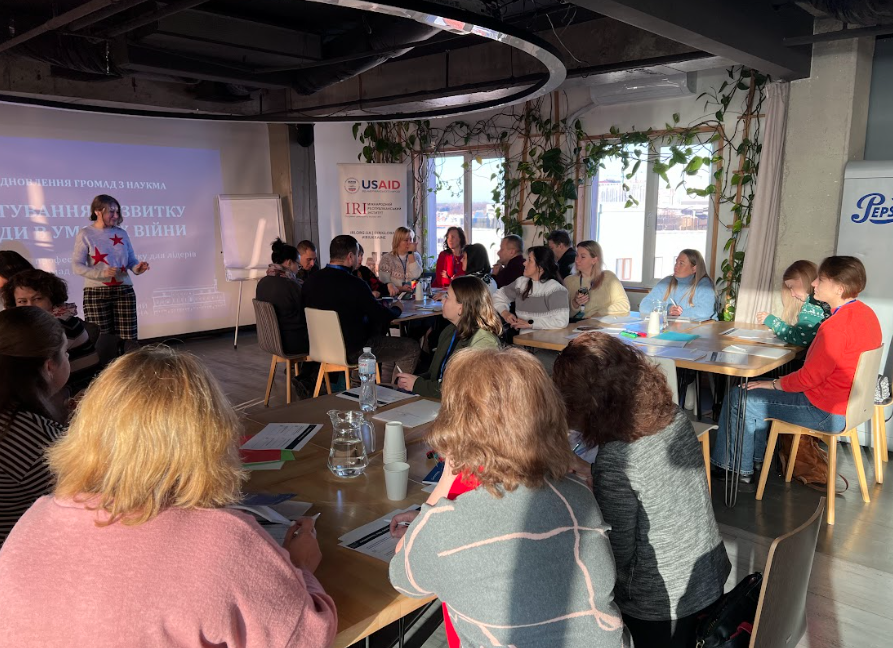
The second day of the intensive was no less active and included both theoretical and practical work on the materials. The participants worked together with representatives of the Kyiv Mohyla School of Professional and Continuing Education, which contributed to a deeper understanding of the key aspects of community recovery in war.
The trainers, Doctor of Economics, Professor Olha Doronyna and Doctor of Political Science, Professor Tetiana Nagornyak, together with the participants analyzed the potential of communities and the main economic and social challenges they face. This helped to formulate adaptive socio-economic policies for different types of communities - temporarily occupied, de-occupied, and rear-guard.
Taking into account the development priorities identified at the first training - education, healthcare, business and investment - the communities worked out strategic objectives and tactical measures that meet the key goals of sustainable development. They also discussed goals and priorities for different types of social and economic policies.
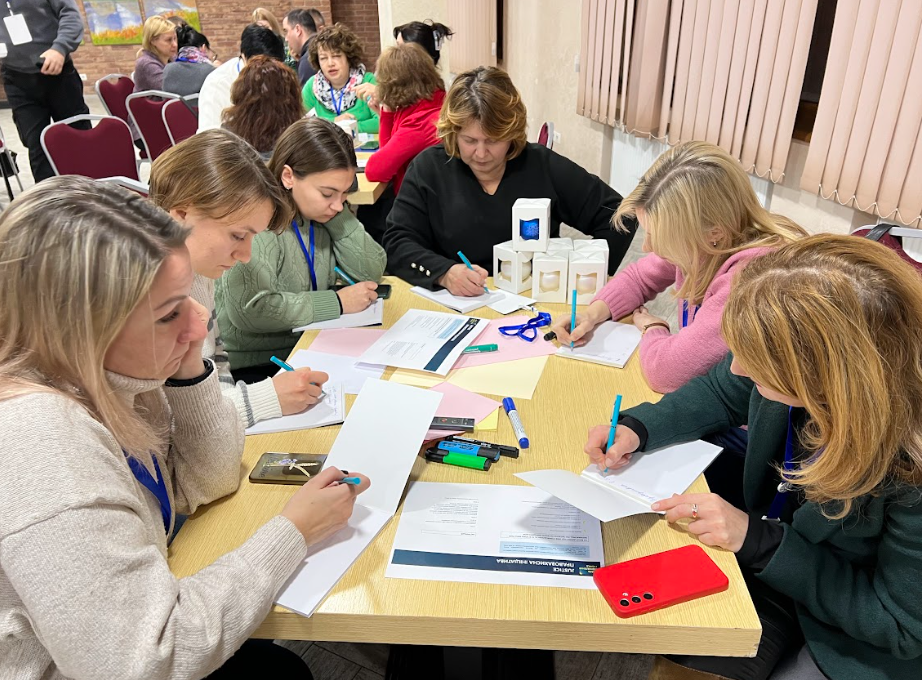
In the format of a world cafe, the participants explored the benefits and risks for communities that have hosted internally displaced persons since the beginning of the war, as well as identified problems and ways to prevent them in the context of IDP integration.
At the end of the training, there was a discussion of the completed homework and typical mistakes in SWOT analyzes, visions, missions, and community development plans.
The workshops were very interesting because you communicate with different communities, get their opinions and experiences, and learn new information from the trainers. It's a great opportunity to learn new things so that you can use ideas and methods to develop your community even more effectively.
The team of the Kyiv-Mohyla School of Professional and Continuing Education expressed satisfaction with the motivation of community representatives and their understanding of the importance of working even under the temporary occupation. They emphasized that communities are the foundation of Ukraine's recovery, and even in difficult conditions, it is important to work with people in order not to lose their potential for the future reconstruction of cities, towns, and villages.
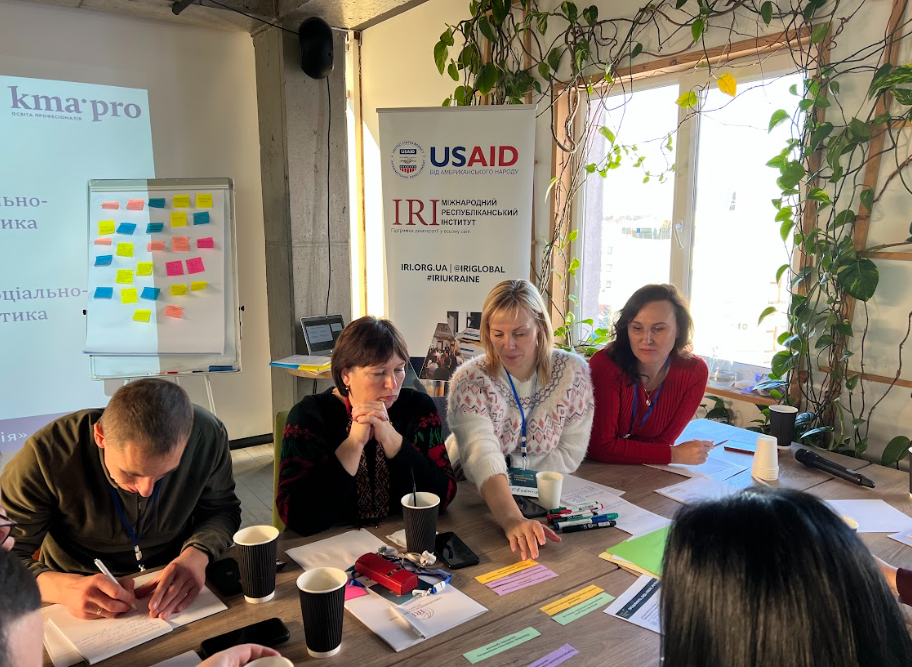
Today we have completed another module. Our meeting with communities was dedicated to auditing the potential of communities, socio-economic policies at various levels, and developing specific local cases that I strongly believe will become the basis for policies from the bottom up. I am convinced that these policies of recovery, integration, and sustainable development should bring Ukraine to high competitiveness markets. I would like to thank all the organizers and colleagues who collect the assets of our communities - rear, occupied and de-occupied. It is a professional happiness to see motivated people who are ready to act for the future of Ukraine: to study, create idea incubators, implement startups and unite in a network of like-minded people who will definitely overcome the tower called russia.
Community Recovery Academy, founded by the Association of Ukrainian Cities and the NGO Mariupol.Reborn, aims to train municipal managers for the recovery period. The project is being implemented with the support of the UK Government under the UK International Development program and the International Republican Institute (IRI Ukraine) in partnership with Metinvest and SCM. The educational partners of the project are Metinvest Polytechnic and the National University of Kyiv-Mohyla Academy.

